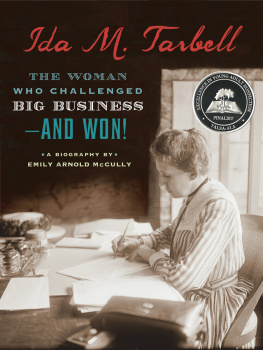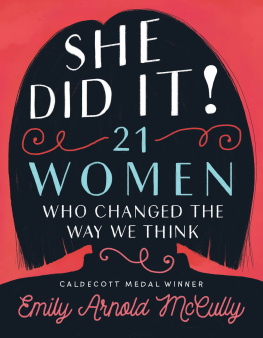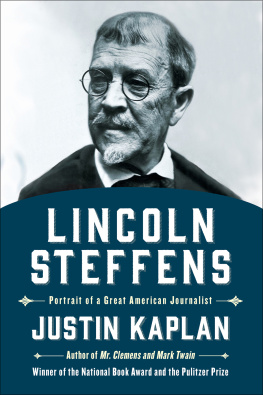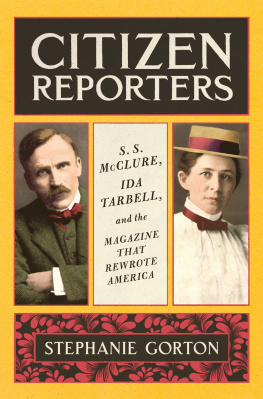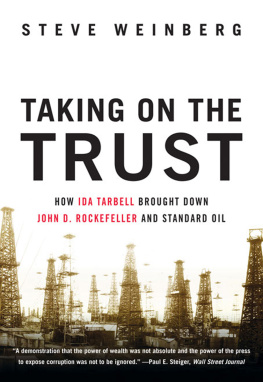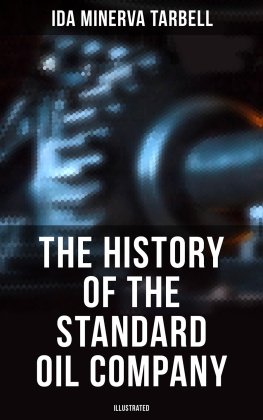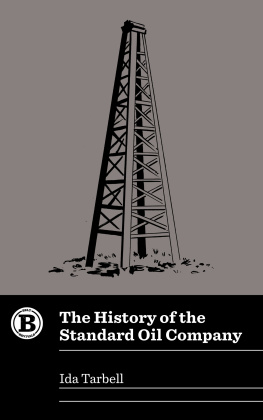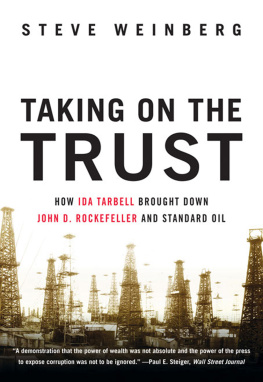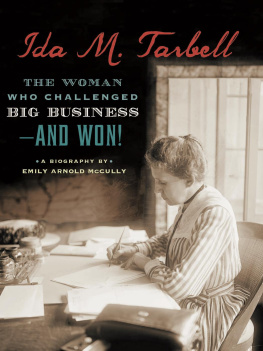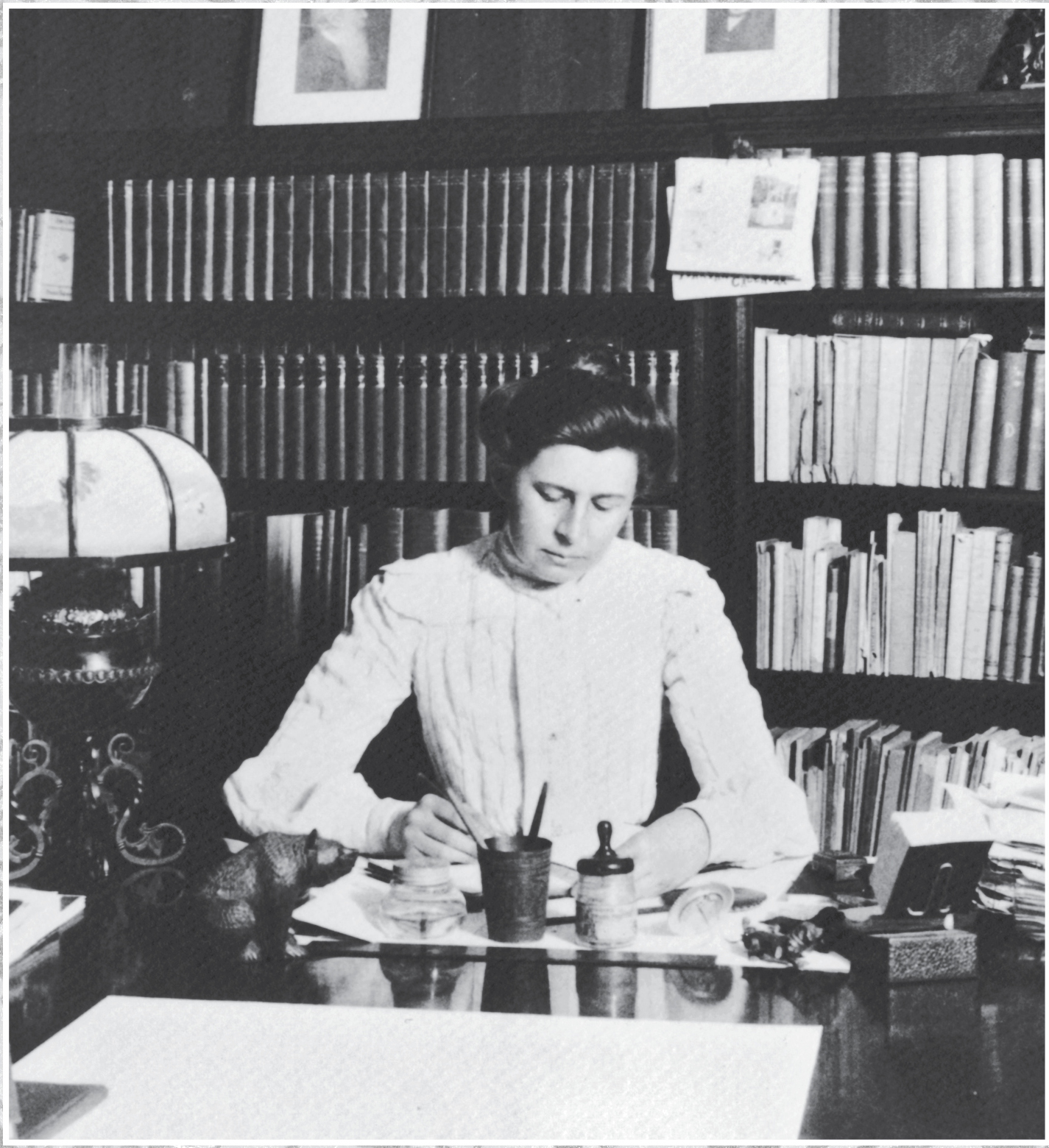
Ida M. Tarbell in a posed photograph meant to show her at work on The History of the Standard Oil Company.
Clarion Books
3 Park Avenue,
New York, New York 10016
Copyright 2014 by Emily Arnold McCully
All rights reserved.
For information about permission to reproduce selections from this book, write to or to Permissions, Houghton Mifflin Harcourt Publishing Company, 3 Park Avenue, 19th Floor, New York, New York 10016.
Clarion Books is an imprint of Houghton Mifflin Harcourt Publishing Company.
www.hmhco.com
Cover photograph by Harris & Ewing, Library of Congress, Prints & Photographs Division
Cover design by Kerry Martin
The Library of Congress has cataloged the print edition as follows:
McCully, Emily Arnold.
Ida M. Tarbell : the woman who challenged big businessand won! / by Emily Arnold McCully.
pages cm
Includes bibliographical references and index.
ISBN 978-0-547-29092-8 (hardcover)
1. Tarbell, Ida M. (Ida Minerva), 18571944Juvenile literature. 2. JournalistsUnited StatesBiographyJuvenile literature. [1. Tarbell, Ida M. (Ida Minerva), 18571944. 2. Journalists. 3. WomenBiography.] I. Title.
PN4874.T23M33 2013
070.92dc23
[B]
2012039650
eISBN 978-0-544-15160-4
v2.0416
For the investigative journalists of tomorrow
PART ONE
Preparation
CHAPTER ONE
The Oil Region
IDA MINERVA TARBELL, an eagerly awaited first child, was born on November 5, 1857, in a log house on her maternal grandparents little dairy farm in Hatch Hollow, Pennsylvania. Idas father was far away in Iowa. Her mothers dreams for the baby daughter were expressed in the names she chose: Ida, from a poem about a womens college, and Minerva, the goddess of wisdom.
Franklin and Esther Tarbell had married after a six-year courtship. Esther was liberally educated for a woman of the time, and both had taught school; as a man, Franklin earned four times what Esther did. He had also worked as a welder, a river pilot, and a carpenter. Now he had relocated again, leaving Esther, pregnant with their child, at her parents farm. He was making a homestead on Iowas fertile soil, so superior to western Pennsylvanias.
Idas grandmother was a frontier snob, given to reminding Esther that she came from one of the best families and was a descendant of Sir Walter Raleigh, of the first American Episcopal bishop, and of a member of General Washingtons staff. Esther would take up this theme with her own children, telling them never to forget who they were. Franklin was descended from hardy, self-reliant New Englanders who had fought wars and cleared land and were not famous or grand. Earlier generations had moved from Massachusetts and New Hampshire to New York, where Franklin was born, then to Pennsylvania.
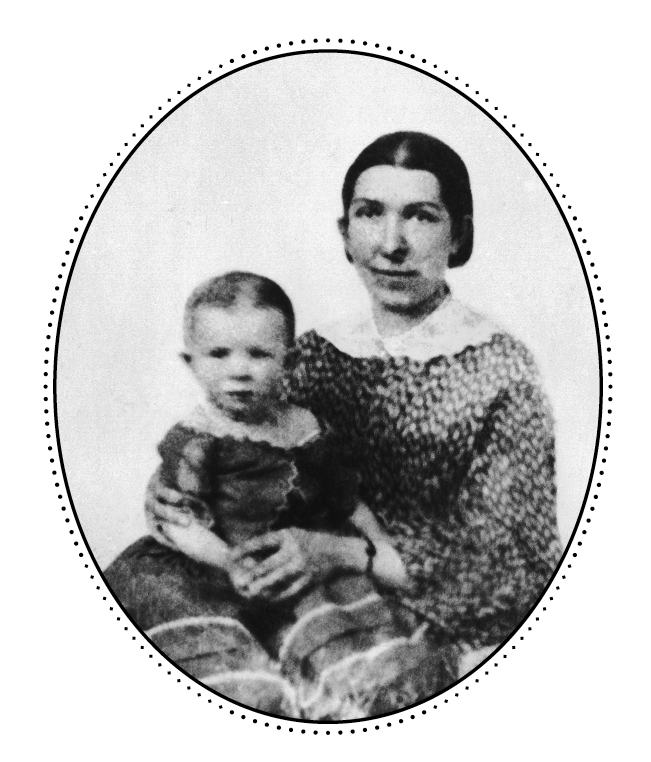
Esther and Ida on Idas first birthday, November 5, 1858.
Conditions in 1857 didnt favor another new beginning. While Iowas white population had grown sixfold in a decade, Sioux warriors still attacked settlers in revenge for the loss of their lands. Iowa winters were much harsher than those most immigrants had ever known. Still, Franklin found a great deal to praise about his new surroundings and described the immensity of flat prairie, its birds and flowers, the sight of wagon trains bearing families farther west.
Franklin was an introspective, judgmental man of powerful religious convictions. The calm demeanor instilled by his Christian faith gave way to manic bursts of activity. He had a great taste for travel and adventure, a sense of fun, and a gift for storytelling that captivated his children. Tall and spare, he was vain enough to cover his early baldness with a wig. While he built their new house, he whistled from morning til night, mischief and tenderness chasing each other across his blue eyes as he thought of [Esthers] coming, their future together.
The Tarbells had expected that their first child would be born an Iowan. But it was not to be. The country entered an economic depression in 1857. In Iowa, railroad lines and construction projects were left unfinished. The Tarbells bank collapsed, wiping out their savings. A disheartened Franklin realized he would have to abandon his unfinished house and go back to Hatch Hollow. Unable to pay for transportation, he began to walk the thousand miles through Illinois, Indiana, and Ohio in the fall of 1858. It took him eighteen months. To pay for food and shelter, he taught in rural schools as he went.
Meanwhile, her adoring grandmother was indulging little Ida Minerva, and no one was competing for her mothers attention. Her first two and a half years of life were so happy, she remembered them later as a lost idyll. Ida spent her days scampering through pastures bright with wildflowers. Lambs, calves, kittens, and puppies were her playmates. She was developing a precocious passion for freedom and beauty.
She had never before laid eyes on the ragged man who appeared on the doorstep and embraced her mother. Ida cried, Go away, bad man!
Franklin still hoped to make good in Iowa. He took a job as a flatboat pilot to earn money so that his wife and daughter could move there with him. But the fall of 1859 was one of the great turning points in modern history. The Tarbells lives were set on an unexpected new course.

Petroleum, or oil, as we know it, is organic waste that has been pressure-cooked deep in the earth over millennia and turned into hydrocarbons: oil and natural gas. Seneca Indians traditionally skimmed the inky green substance from ponds and streams and rubbed it on their bodies to treat aches and pains. White settlers, including Franklin Tarbell, learned to use it too, soaking up surface oil with blankets, wringing them out, and applying the stinking ooze to their joints and machinery alike. Some even drank it to prevent colds. A 1755 map of western Pennsylvania labels the area Petroleum and identifies one of the waterways there as Oyl Creek. Oil floated regularly on the creek and was sold as a patent medicine called Seneca Oil. Seeping into the crevices in rock, and often sealed under a layer of salt water, oil was considered an undesirable byproduct released when salt was drilled.
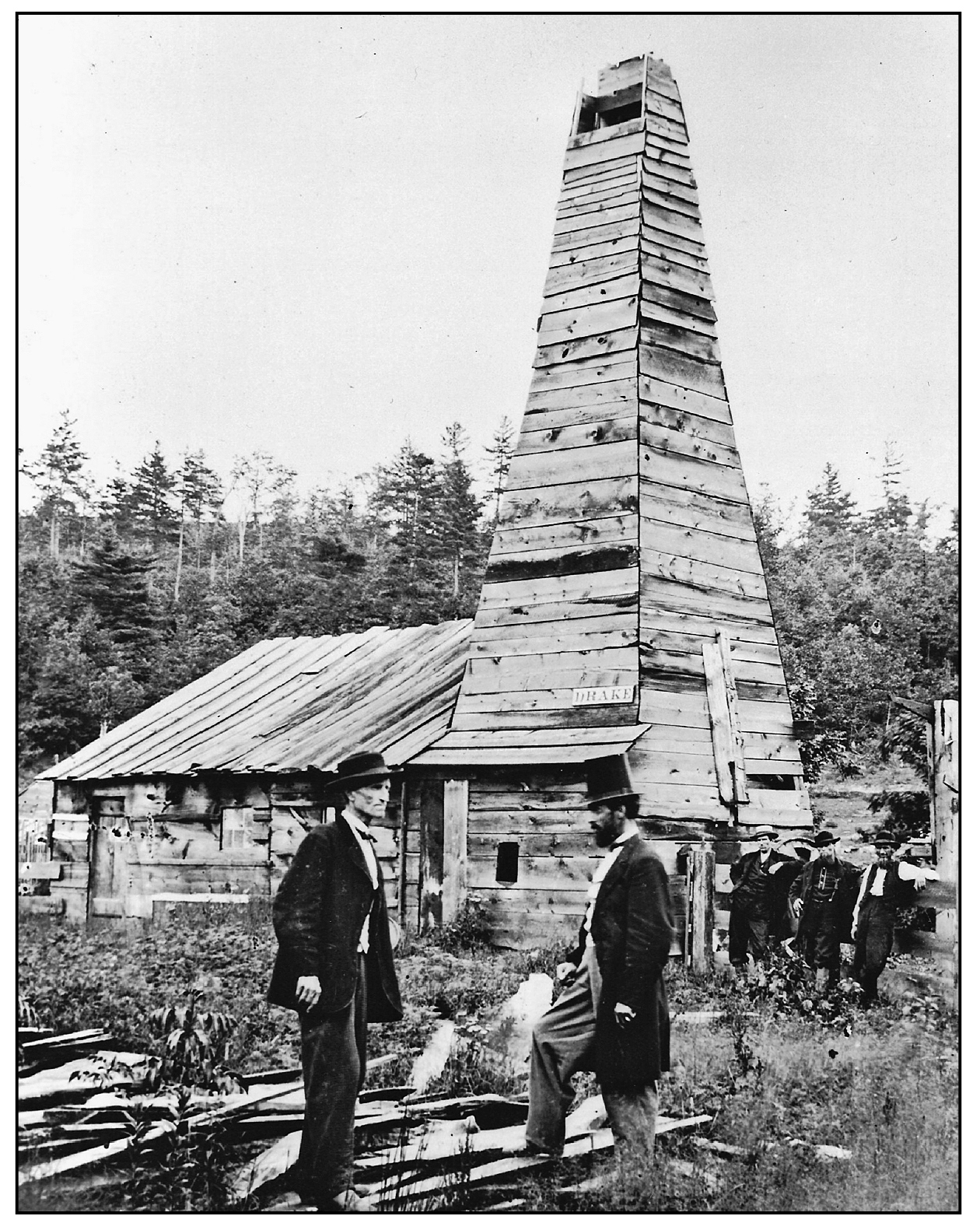
Edwin Drake (in top hat) and an unidentified man with Drakes famous well in the background, 1859.
In the 1850s, whale oil, then the principal fuel for lamps, was becoming scarce, as whales had been overhunted. Coal oil (kerosene distilled from petroleum) was a common substitute, but it was smoky and smelly, and the flame went out when a coal-oil lamp was carried from room to room. A chimney lamp invented in Europe made coal kerosene more practical, but coal oil clogged lamp parts and was unsafe to use in confined spaces.
After one of a group of investors visited western Pennsylvania in 1853 and reported the regions promise, a sample of oil was sent to a chemist at Yale University, who determined that oil could be refined into lamp fuel. This made oil a potentially profitable resource. The investors decided to try adapting a derrick used to drill for underground salt to see if it could recover large quantities of oil from deep underground recesses.

